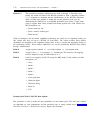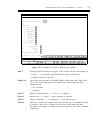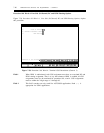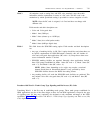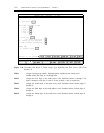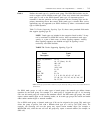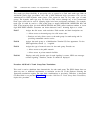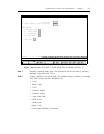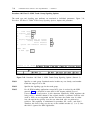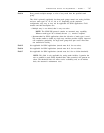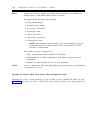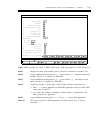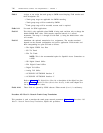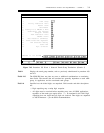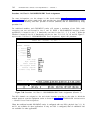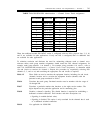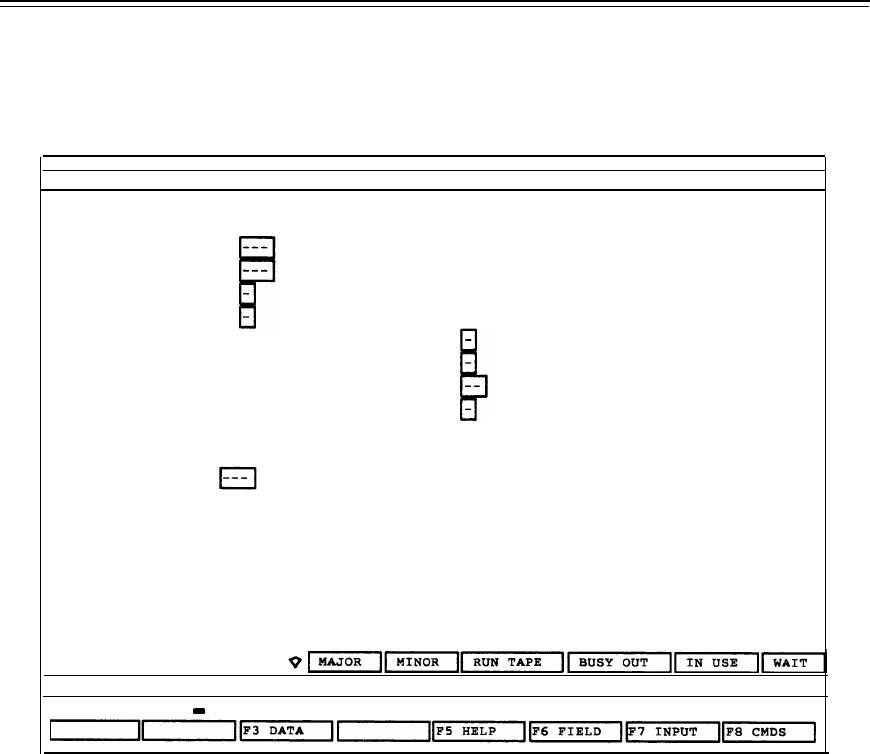
7-86
ADMINISTRATION OPTIONS AND REQUIREMENTS — GENERIC 2
Procedure 100 Word 3: ISDN Trunk Group Signaling Options
The trunk type and signaling type attributes are translated as individual parameters. Figure 7-41,
Procedure 100 Word 3: ISDN Trunk Group Signaling Options, depicts this procedure.
ENHANCED MODE - PROCEDURE: 100, WORD: 3
TRUNK GROUPS - SIGNALING AND OTHER PARAMETERS
1.
2.
3.
4.
5.
6.
7.
8.
Trunk Group:
Signaling Type:
Glare:
Retry:
Outgoing Maintenance Busy Out Seizure:
Incoming Permanent Seizure:
Failure Threshold:
Optional ISDN Information Inhibited:
DISPLAY ONLY
9.
Trunk Type:
Coinnected to CC0 ON-LINE
enter command:
Figure 7-41. Procedure 100 Word 3: ISDN Trunk Group Signaling Options (Generic 2)
Field 1 Specifies a trunk group. Permitted entries include any not already used number
within the range of 18 to 999.
Field 2 Specifies the signaling type for the trunk group.
Field 3 For all ISDN trunking applications except DCS, glare is resolved by the ISDN
protocol. Glare is discussed in more detail in the chapter entitled Network
Connections and Configurations in this document. Specifically, ISDN negotiates the
losing call to a different channel if the original channel is preferred. Exclusive calls
(such as DCS) are not negotiated and the user hears the reorder tone. In either
case, the network has priority over the user when both calls are preferred or
exclusive. This capability is administered in procedure 262, word 1, and field 5.
Therefore, this field 3 entry may be any of the available encodes (0, 1, or 2) since
this field is ignored for ISDN applications.



